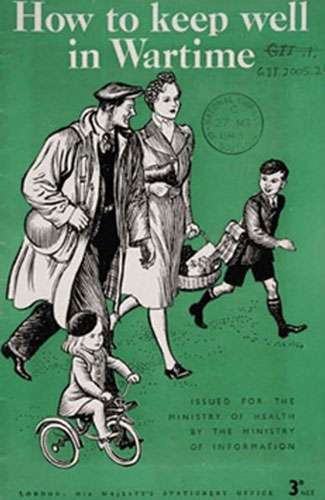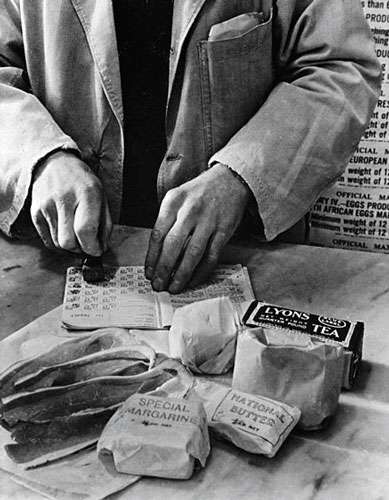
According to an old booklet ‘How to Keep Well in Wartime’ published in the 1940s by the Ministry of Health for the Ministry of Information ‘the nation’s stubborn good health has been invaluable to our war effort. Even so, as a nation we are still losing about 22 million weeks’ work every year through common and preventable illnesses…’
In those days that equated to the loss of 22,000 tanks, 6,750 bombers and 6,750,000 rifles a year.
The advice given in the booklet is this:
1. Be regular in your living habits (eating, sleeping, resting, working, emptying the bowels)
2. Get enough sleep (If you end the day badly, you will begin the day badly…in other words be in bed by 10pm!)
3. Get your share of air and sunshine (If you have been indoors all day, get outside and walk or 15 mins before bed as it calms the mind before sleep)
4. Keep mind and body active (Keep your body moving, engage in hobbies during your spare time)
5. Choose the right food (‘One of the benefits of the war is the more intelligent interest everyone has taken in food’. Eat lots of veg, drink plenty of water, eat protein to keep your body healthy)
6. Be moderate in all things (Don’t be extreme in anything but keep it in balance for your health)
7. A word to those who worry (Worry and anxiety are damaging to the body so don’t worry about stuff that you can’t control)
8. Fight disease with hygiene (Wash your hands after using the toilet)
9. Stop germs from spreading (Cover your mouth when you cough, cleanliness prevents lice!)
10. Help yourself to be well (Whatever your age, strive for the best health available to you).

In the 21st century, this advice may seem dated and too simple but in fact I tell my clients a version of the above all the time! Businesses today suffer from something called ‘presenteeism’ where employees are at work but are under-functioning and unable to concentrate due to brain fog or energy slumps, abdominal pain or back pain. Companies are losing millions of work hours every year because the workforce is ‘below par’. Taking just some of the advice above would change some of the current statistics.
A high carbohydrate lunch e.g. sandwiches and a coffee will guarantee an energy slump between 3-4pm! Want to avoid it? Swap sandwiches for a chicken salad without the sugar rich salad dressing! Drink an Americano or water instead of a latte. Don’t choose fresh orange juice either as, although it’s fruit, without the fibre in it there will be a spike in your blood sugar and then you get the crash later.

During the war when rationing was in force, sugar was at a minimum. Since then there has been an explosion in the confectionery market and a massive change in our shopping habits. Foods now have sugar or salt added to them in order to hit the ‘sweet spot’ in the brain, making us eat more even when we aren’t really hungry. High blood sugar triggers insulin in the body and research clearly shows that high insulin is a key player in ageing and weight control, diabetes, heart disease and cancer. As well as controlling blood sugar, raised insulin triggers an increase in cholesterol production in the liver. It also makes the walls of blood vessels contract so that blood pressure goes up. This action stimulates the release of fats called triglycerides which are linked to a raised risk of heart disease and diabetes.
We would do well to heed the simple advice given to our parents/grandparents during the war so that we too could say that we enjoy ’stubborn good health’ as a nation!
As the old wartime booklet says ‘to maintain vigorous health calls for conscious effort from each of one us!’ I totally agree! ![]()
For advice on how to discover your vigorous good health, email me: sue@thegenuinelivingcompany.com











